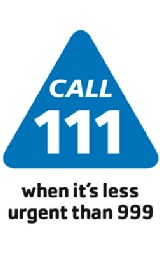
Cervical screening programme
The aim of the NHS Cervical Screening Programme is to reduce the number of women who develop cervical cancer and the number of women who die from the condition.
Since the screening programme was introduced in the 1980s, the number of cervical cancer cases has decreased by about 7% each year.
All women who are registered with a GP are invited for cervical screening:
- aged 25 to 49 – every 3 years
- aged 50 to 64 – every 5 years
- over 65 – only women who haven't been screened since age 50 or those who have recently had abnormal tests
Being screened regularly means any abnormal changes in the cells of the cervix can be identified at an early stage and, if necessary, treated to stop cancer developing.
But cervical screening isn't 100% accurate and doesn't prevent all cases of cervical cancer.
Screening is a personal choice and you have the right to choose not to attend.
Read about:

Breast Screening Programme
About 1 in 8 women in the UK are diagnosed with breast cancer during their lifetime. If it's detected early, treatment is more successful and there's a good chance of recovery.
Breast screening aims to find breast cancers early. It uses an X-ray test called a mammogram that can spot cancers when they're too small to see or feel.
But there are some risks of breast cancer screening that you should be aware of.
As the likelihood of getting breast cancer increases with age, all women aged 50 to 70 and registered with a GP are automatically invited for breast cancer screening every 3 years.
In the meantime, if you're worried about breast cancer symptoms, such as a lump or area of thickened tissue in a breast, or you notice that your breasts look or feel different from what's normal for you, don't wait to be offered screening – see your GP.
Why is breast screening offered?
Most experts agree that regular breast screening is beneficial in identifying breast cancer early.
The earlier the condition is found, the better the chances of surviving it.
You're also less likely to need a mastectomy (breast removal) or chemotherapy if breast cancer is detected at an early stage.
The main risk is that breast screening sometimes picks up cancers that may not have caused any symptoms or become life threatening. You may end up having unnecessary extra tests and treatment.
When will I be offered breast screening?
Breast screening is currently offered to women aged 50 to 70 in England.
But currently there's a trial to examine the effectiveness of offering some women one extra screen before the age of 50 and one after 70.
You'll first be invited for screening between your 50th and 53rd birthday, although in some areas you'll be invited from the age of 47 as part of the trial extension of the programme.
You may be eligible for breast screening before the age of 50 if you have a very high risk of developing breast cancer. For more information, read having a family history of breast cancer.
If you're over the age of 70, you'll stop receiving screening invitations.
You can still have screening after 70 if you want to, and can arrange an appointment by contacting your local screening unit or GP.

Bowel Screening Programme
Bowel cancer is a common type of cancer in both men and women. About 1 in 20 people will get it during their lifetime.
Screening can help detect bowel cancer at an early stage, when it's easier to treat. It can also be used to help check for and remove small growths in the bowel called polyps, which can turn into cancer over time.
Types of screening test
There are 2 types of test used in NHS bowel cancer screening:
- bowel scope screening – a test where a thin, flexible tube with a camera at the end is used to look for and remove any polyps inside your bowel
- home testing kit (the FOB test) – a kit you use to collect small samples of your poo and post them to a laboratory so they can be checked for tiny amounts of blood (which could be caused by cancer)
If these tests find anything unusual, you might be asked to have further tests to confirm or rule out cancer.
When it's offered
NHS bowel cancer screening is only offered to people aged 55 or over, as this is when you're more likely to get bowel cancer:
- if you're 55, you'll automatically be invited for a one-off bowel scope screening test, if it's available in your area
- if you're 60 to 74, you'll automatically be invited to do a home testing kit every 2 years
- if you're 75 or over, you can ask for a home testing kit every 2 years by calling the free bowel cancer screening helpline on 0800 707 60 60
If you're too young for screening but are worried about a family history of bowel cancer, speak to your GP for advice.
Always see a GP if you have symptoms of bowel cancer at any age – don't wait to have a screening test.

Abdominal Aortic Aneurysm Screening Programme
Abdominal aortic aneurysm (AAA) screening is a way of checking if there's a bulge or swelling in the aorta, the main blood vessel that runs from your heart down through your tummy.
This bulge or swelling is called an abdominal aortic aneurysm, or AAA. It can be serious if it's not spotted early on because it could get bigger and eventually burst (rupture).
Who's screened for AAA
In England, screening for AAA is offered to men during the year they turn 65.
Men aged 65 or over are most at risk of AAAs. Screening can help spot a swelling in the aorta early on when it can be treated.
Screening for AAA isn't routinely offered to:
- women
- men under 65
- people who've already been treated for an AAA
This is because the risk of an AAA is much smaller in these groups.
You can ask for a scan to check for an AAA if you think you might need one but haven't been offered a screening test.
How to get screened for AAA
If you're a man and you're registered with a GP, you'll get a screening invitation in the post when you're 64 or soon after your 65th birthday. You can then arrange an appointment that suits you.
If you're a man over 65 and you haven't been screened before, you can ask for a test by contacting the South Yorkshire AAA screening service directly.
If you're a woman or man under 65 and you think you might have a higher risk of AAA – for example, because a close family member has had one – talk to your GP about the possibility of having a scan to check for an AAA.
 Privacy Notice
CQC
Travel Advice
Facilities
Health Advice
Practice Leaflet
Patient Group
Privacy Notice
CQC
Travel Advice
Facilities
Health Advice
Practice Leaflet
Patient Group









5 Lawson Road, Sheffield S10 5BU
(0114) 266 5344
14 Blackbrook Road, Sheffield S10 4LP
(0114) 230 6777




 Privacy Notice
CQC
Travel Advice
Facilities
Health Advice
Practice Leaflet
Patient Group
Privacy Notice
CQC
Travel Advice
Facilities
Health Advice
Practice Leaflet
Patient Group







